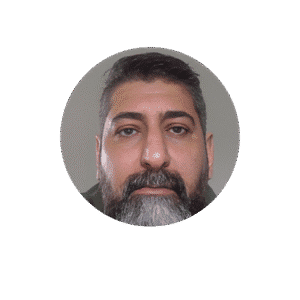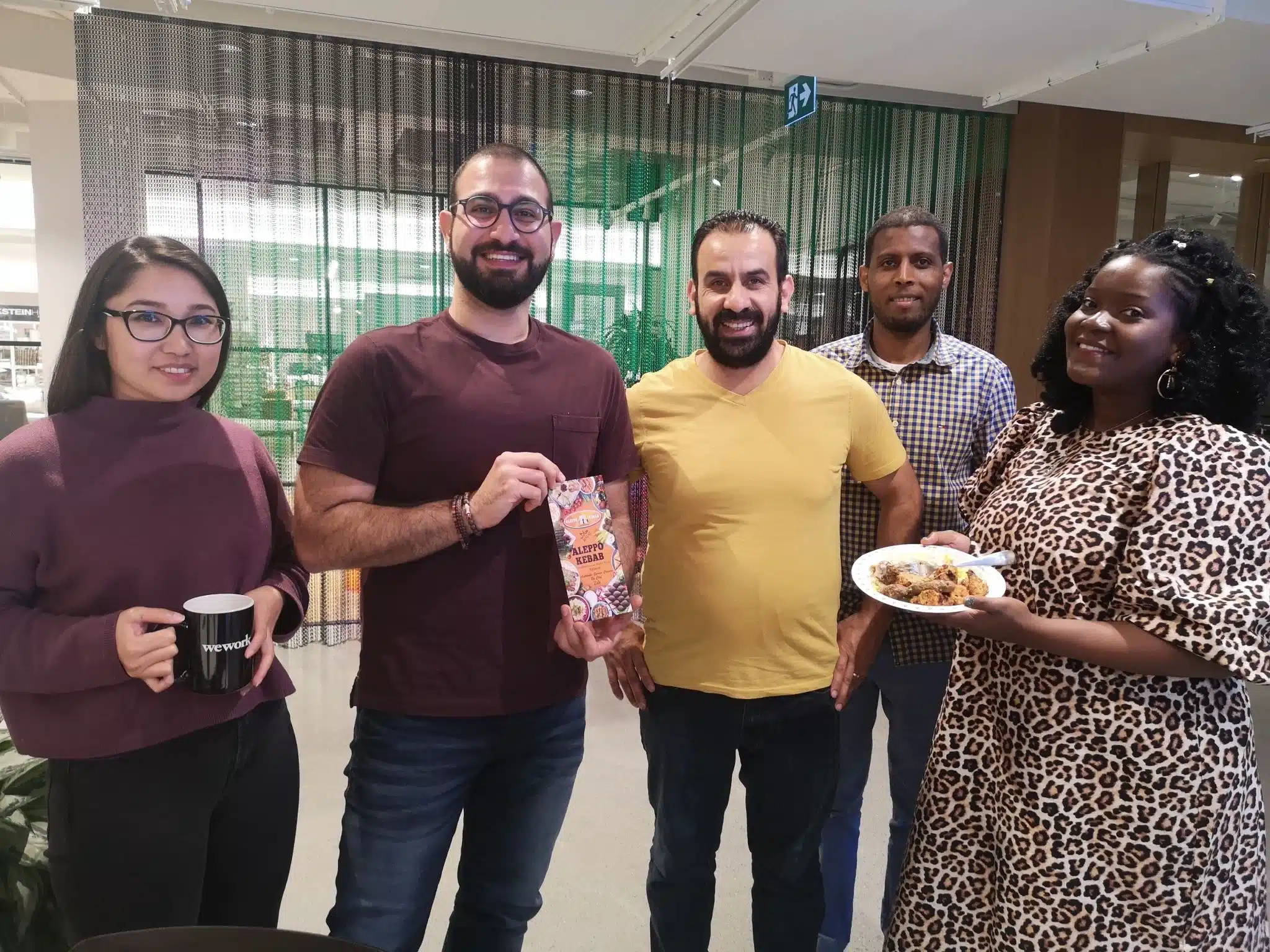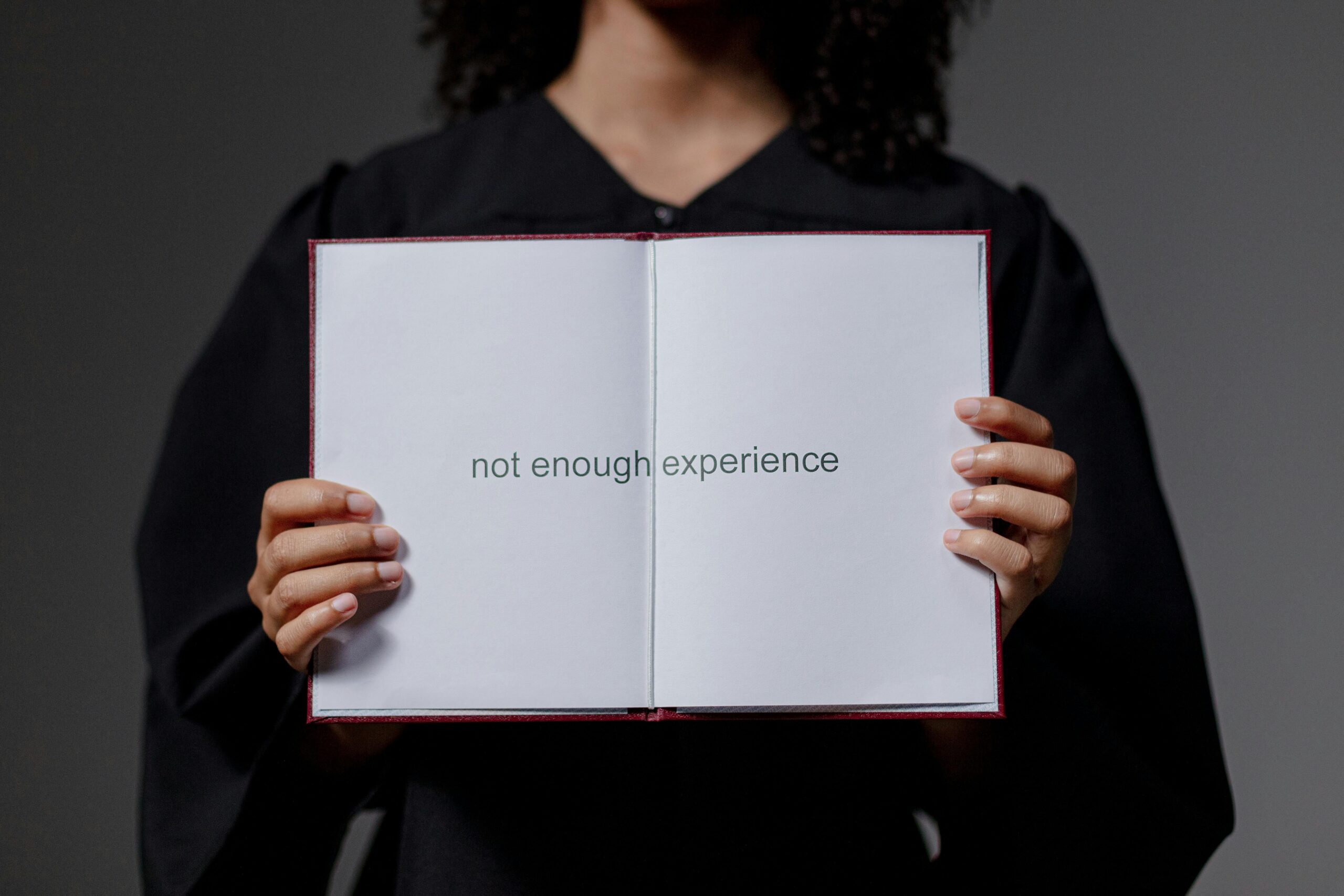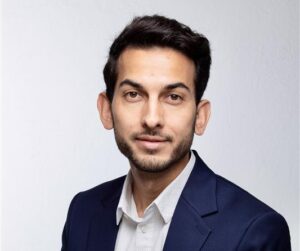On May 7, 2025, Jumpstart Refugee Talent hosted an inspiring and informative “Ask Me Anything” workshop titled “Empowering Refugees in Skilled Trades, Licensing & Employment Info Session.” This timely session was led by Mostafa Essa, Program Manager at the Syrian Canadian Foundation, and brought together refugees interested in pursuing or continuing careers in skilled trades across Canada.
The event was designed as an open and inclusive space to address the many questions refugees face when trying to navigate the complex world of trade licensing, employment, self-employment, language training, and workplace safety. With a focus on empowerment and practical guidance, the session delivered actionable information and inspiration to an engaged audience.

A Welcoming Start: Recognizing the Potential of Refugees
The session began with a warm introduction by the Jumpstart team, who reiterated the organization’s commitment to supporting refugee talent and breaking down barriers to economic integration. Mostafa Essa opened the workshop by acknowledging the resilience and diverse talents of refugees, especially those who come with prior experience in skilled trades such as carpentry, plumbing, electrical work, automotive repair, and more.
He stressed a crucial point: refugees are not starting from zero—they are bringing years of experience, technical skills, and strong work ethics. However, the licensing and employment landscape in Canada can be overwhelming, particularly when there are language barriers or a lack of local networks.
Demystifying Trade Licensing in Canada
One of the core themes of the session was understanding how to obtain trade licenses in various provinces. Mostafa broke down the licensing pathways for both regulated and non-regulated trades. He highlighted that while each province has its own system, refugees should start by identifying whether their trade is regulated and what credentials are required to practice.
For regulated trades, such as electricians or plumbers, refugees may need to pass certification exams or complete apprenticeship programs. Mostafa emphasized the importance of connecting with provincial regulatory bodies like Ontario College of Trades (or its current equivalent), Red Seal certification, and Skilled Trades Ontario.
Importantly, he pointed attendees to credential recognition services and advised seeking prior learning assessments, which can often reduce the time needed to become certified in Canada.
Employment and Self-Employment Tips for Refugees
Moving into employment strategies, Mostafa shared practical advice on how refugees can secure jobs even before completing the licensing process. He recommended:
- Targeting entry-level roles or assistant positions in their respective trades to gain local experience.
- Volunteering or doing trial work with employers who may later offer full-time positions.
- Networking through community organizations, trade unions, or local business improvement associations.
- Leveraging mentorship opportunities and informational interviews to build industry connections.
He also offered valuable insights for those interested in self-employment. For tradespeople with entrepreneurial ambitions, starting a small business or subcontracting can be a viable path, especially in communities with high demand for services. However, he cautioned about the need to understand business registration, taxation, and insurance requirements in Canada.
Language & Safety Training Resources
Another key area of discussion was language training. Mostafa acknowledged that technical vocabulary and safety terminology can pose significant challenges. He recommended refugees pursue occupation-specific language training (OSLT) where available, in addition to general ESL or LINC programs.
Workplace safety was another area where new arrivals often need support. Mostafa outlined various free or subsidized safety training programs, including WHMIS (Workplace Hazardous Materials Information System), Working at Heights certification, and First Aid/CPR courses. He also encouraged employers to be more inclusive by offering these resources and translations in accessible formats.
Live Q&A: Real Stories, Real Questions
One of the most valuable parts of the session was the live Q&A. Refugee participants asked questions ranging from how to prove their prior work experience to how to find apprenticeships or deal with employment discrimination.
Mostafa answered each question with empathy and expertise, offering tailored suggestions and local resources. His responses reflected a deep understanding of the structural barriers refugees face and a strong belief in their capacity to overcome them.
Building Bridges and Breaking Barriers
The workshop concluded with a message of hope and perseverance. Mostafa encouraged participants to stay connected with community organizations like the Syrian Canadian Foundation, Jumpstart Refugee Talent, and local employment centers. These groups are essential in bridging the gap between skilled refugees and a Canadian economy that urgently needs their talents.
By sharing honest information, providing a platform for real-time questions, and offering culturally responsive support, this session stood as a powerful example of how we can collectively empower refugees to thrive in the skilled trades.
Final Thoughts
Skilled trades are vital to Canada’s economy—and refugees with trade experience are an underutilized asset. With the right support in licensing, employment, language training, and safety education, they can contribute meaningfully and sustainably.
Events like this Ask Me Anything session not only provide practical guidance but also foster a sense of belonging and motivation. As Mostafa Essa so eloquently put it, “You are not just rebuilding your life—you are helping to build this country.”






